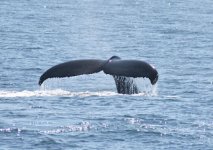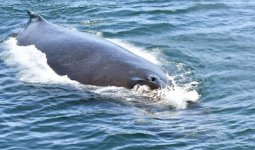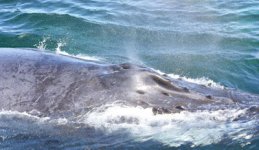ssobol":2bm3gbg9 said:
JamesTXSD":2bm3gbg9 said:
... There are only 78 members of the Southern Resident Killer Whales left. The outlook is not good. ...
Not to make light of the situation, but when I last lived in the area (about 20 years ago) there were about 75-80 members of the Southern Resident Orca pods. At the time the researchers said that they were endangered and would likely disappear. It seems to me that the population is fairly stable. Granted Orcas normally have long lives and any population trends may take a long to become apparent.
I don't proclaim to be an expert, but I have learned a lot while working in the whale watch business that last 5 years... with trained naturalists and marine biologists onboard the boats.
Last year, the SRKW population was 84. This year, it currently stands at 78. The research is better and more defined than it was 20 years ago. The biggest immediate issue the SRKW population faces is the decline of their food source: chinook salmon (95% of their diet). Estimates last season put the salmon runs at 7% of normal. The discussion of what to do about the salmon can deteriorate into an argument quickly - I am not offering a solution here, just explaining the situation as shown by the research.
Orcas are similar to humans for reproduction age and duration (well, except for a 17 month gestation period) - there are fewer animals in the prime breeding age.
Calf mortality is around 50% for survival at one year. The reason for this: the SRKW population is some of the most toxic of mammals. The likely source of the toxins in their bodies is from PCBs, fertilizer run-off, and other toxins in the water. The females are able to expel some toxins by giving birth - yeah, they pass it on to their calves. Meaning the babies are at a health disadvantage right off the bat. The males have no way to expel toxins - which probably relates to their lifespan being shorter than females.
There has been a great deal of research trying to determine the impact of boats (and, their noise and exhaust) around the whales. Nothing definitive, but I can give my first-hand experiences. The Orcas seem indifferent to boats, as long as proximity and noise isn't an issue. When boats encroach on their space, they do tend to make avoiding maneuvers.
Other observations: the transient Orcas (aka Biggs Orcas) in the PNW are not stressed due to food source - there is no shortage of harbor seals and harbor porpoise. Their numbers are not declining. Like the Residents, they seem indifferent to passing boats. They spend less time in the "more populated" areas, so less exposure to toxins.
I have previously mentioned here the NOAA proposed "No Boat Zone" - this has nothing to do with the 200/400 yard distance that boats are required to keep between themselves and the whales; rather, the proposal is to make the west side of San Juan Island a "No Boat Zone." In reality, the SRKWs are in that area somewhere around 3 to 5% of the time they are in the Salish Sea. So, for the other 95 to 97% of the time, this "zone" would have no impact. Other than to restrict boats from passing through that area. Or, fishing. (the west side of San Juan Island is a popular fishing area) No provision is made for the fact that this area is a major shipping lane, as well.
The next step would likely be an expanded distance restriction from whales. Either this or the proposed "No Boat Zone" will have a major effect on tourism in Washington State and Canada. Whale watching is a a big part of the economy in that area, which also brings visitors to lodging and restaurants.
My gut feeling: boats are not an impact. Especially, if they follow the current regulations regarding distance and speed. Boaters who run up on the whales, speed in and out from viewing, and are indifferent to the federal and state regulations are an impact. The fact that the Transients are doing well while the Residents are threatened is due to the lack of food and toxins.
A lot has changed in 20 years. Researchers can been seen most days on "poop watch" - operating under a special license that allows them to get close to the whales to pick up scat. By studying this, they can tell who (DNA) and the general health/diet of the animal. You may see a dog on board their boat, trained to react when it detecst the scat.
The public is more aware of the plight of the Residents, due to the media, the showing of the docu-movie "Blackfish," and what they learn on the whale watch boats who employ biology professionals. The eco-minded whale watch operators follow the regulations. Granted, there are yahoos in that group, but they are generally weeded out thanks to participation by the professional whale watch organization.
I think the situation for J, K, and L Pods is more dire than it was 20 years ago, and not any kind of scare tactic. I truly hope these magnificent mammals will be around for generations to come.



